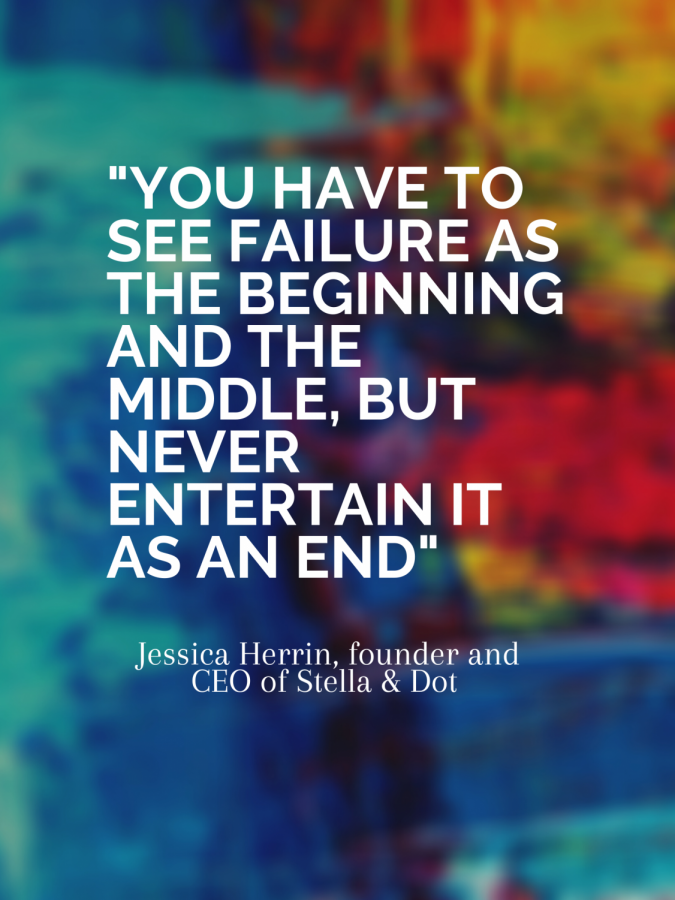Entrepreneurship: Where risk meets reward
April 23, 2021
62 percent of U.S. billionaires reached success through starting their own business, the concept pegged entrepreneurship, and millions more attempt to achieve similar successes. However, 22.5 percent of small businesses fail within the first year, and about 50 percent fail within the first five years. Entrepreneurship consists of trials and tribulations; successes and failures; and opportunities and setbacks. Over the years, the idea of entrepreneurship has catapulted to new heights, but rarely do people see the ins and outs of the entire process.
“I think entrepreneurship is a very risky route to go down because you never know if your business will fail and you have wasted your time. However, it can also pay off if you play it smart. It might be something I would consider, potentially starting my own law firm in the future,” junior Cayenne Jonkam said.
Entrepreneurship takes on several different forms, including small businesses, scalable startups, large companies, and social entrepreneurship.
Small businesses generally function with less in size and revenue than corporations and include companies that people start with no intention of growing into a chain. Small businesses consist of the majority of entrepreneurial ventures in the United States. Mom-and-pop shops, local grocery stores, and tiny hometown cafes qualify as small businesses.
Magnet freshman Marleigh Cherichel and junior Sabina Sahovic started small businesses of their own: Marleighs Marvelous Makings and SabinazStore respectively. Alumna Amina Sahovic started a small business while a NC student, Glossy and Bossy, which she continues to run and grow today. Additionally, Kennesaw contains a plethora of small businesses including Lazy Labrador Coffee House, Frozen Cow Creamery, and Apotheos Roastery.
“Day to day life of running a business is assuring that you have your checklist of priorities finished. Whether it’s posting on socials, updating your website, shipping out orders, you always have to keep in mind the next move,” Amina Sahovic said.
Scalable startups begin with an idea or business model that contains the potential to grow exponentially. Investors play a role in countless scalable startups, helping them to gain a strong foundation and generate the workings of a successful business.
When a new business descends from an established, larger company, it falls under the category of large business entrepreneurship. These businesses benefit from the resources of the larger company, and the larger company receives numerous benefits as well. Although these types of businesses comprise an extremely low percentage in the U.S., they tend to identify with the masses; examples include Samsung and Google.
Social entrepreneurs typically start businesses with the main objective of creating a positive impact in society and inspiring change within their community. Setting out to exclusively use environmental friendly products, help others make a living, or advance underrepresented groups all provide examples of social entrepreneurship.
Magnet senior Kacy Handzel, a social entrepreneur, started Blissful Boxes after learning about the increased homelessness around the Atlanta area due to the COVID-19 pandemic. A dire need existed amongst the homeless women for hygiene products, and Handzel sought to help. Amina Sahovic, also considered a social entrepreneur, ensures Glossy and Bossy produces vegan, cruelty free, and homemade products.
“Blissful Boxes was created with the goal of bringing necessities and smiles to as many women as possible. Our objective is to turn basic hygiene packages into personal, heartfelt gifts. Women deserve presents not rations,” the Blissful Boxes website said.
Regardless of the type of entrepreneurship, starting a business requires several steps that vary accordingly: conducting market research, developing a business plan, and acquiring funding. However, for those starting small businesses, these tasks solely depend on the owner. These beginning steps build the foundation for a well functioning business and can produce difficulties down the line without the proper time and effort.
“Entrepreneurship was not everything I expected it would be. I did not realize how much time and energy I would have to put in. I wish I had known how to effectively market the business and where to find different avenues for funding when I first started out.,” owner of C&C Healthcare Services Inc, Dr. Nicole Anyangwe said.
Without conducting market research, it proves difficult to gain an accurate understanding of how a business would perform under current market conditions. It also limits the knowledge of the owner regarding how similar businesses function and different opportunities available to advance their business. Market research allows entrepreneurs to gain a competitive edge from the start.
Business plans, a critical component of starting a business, provide a structure detailing how the business will function while creating a stable foundation. When seeking funding, business plans play a key role in convincing investors that a business will generate success. Different revenues for funding exist, though acquiring needed funds may provide a challenge.
Location can determine the success of a business. Concerning the good or service a business provides, different locations possess different demands for specific goods and services. With little demand, the goods or services will not sell. Kennesaw ranks at number 19 for the nation’s best neighborhood for small businesses.
“If you are preparing to open a food or retail business with a storefront, putting your business in the proper location might be the single most important thing you do at startup,” business writer at Entrepreneur, Karen Spaeder said.
Choosing a business structure and name, registering a business, meeting federal requirements, applying for licenses, and opening a bank account come later in the process of starting a business. Starting a business requires large magnitudes of hard work, time, and energy.
“When I was getting started, I began researching what’s needed in a lipgloss formula, what is nourishing for the lips, and all vegan ingredients. Following that came with what tubes I wanted, what labels I wanted, etc. It was all about a 7 month process and I was working a job to get the sufficient funds for my startup. My biggest support was my family and they helped me with everything I needed as well. My mom actually came up with the name “Glossy and Bossy” randomly one day, and I loved it immediately,” Amina Sahovic said.
When entrepreneurs start a business, they face innumerable risks. Financial, competitive, and reputational risks threaten entrepreneurs on a daily basis. When considering starting a business, one must weigh the risks versus the rewards. This threat of potentially failing causes students to shy away from entrepreneurship.
“I think that entrepreneurship requires skills that everyone should strive to have. The task itself seems really difficult and takes strong-willed and hardworking individuals to succeed. Entrepreneurs have to take risks that will skyrocket their business or tank it. Personally, I don’t think I have the guts to do it, but will continue to work on the skills possessed by entrepreneurs,” junior Mckenna Clary said.
Risks facing entrepreneurs can lead to failure, but they could also create success and growth. Taking risks and pursuing a passion eliminate regret and fulfill pressing desires. High risk comes with high reward; the majority of billionaires achieved their successes by choosing to take a risk. However, NC students share valid thoughts regarding these risks.

“I think that entrepreneurship is interesting since it takes a lot of hard work, dedication, and the ability to take risks in order to become successful. Unfortunately, I do not think it will be something I would consider in the future because I have no idea what kind of business I would start, nor do I have the ability to take financial risks,” senior Cindy Pham said.
Although NC entrepreneurs acknowledge the risks, the experience and rewards of entrepreneurship hold a greater value than the fear of failing in their eyes. Amina Sahovic recounts the risks as the best part of entrepreneurship.
“Taking a risk and getting a great result is an amazing feeling. Some risks you don’t gain positive results from, but that’s okay as well. Every risk is either a blessing or a lesson. You learn and grow from it,” Amina Sahovic said.
Owner of Marleighs Marvelous Makings, Marleigh Cherichel describes entrepreneurship as the opportunity of a lifetime. She values the learning experiences, growth, and benefits above all else. As an initiative Cherichel always desired to pursue, she feels grateful for the ability to start her own business.
“I personally love entrepreneurship and it’s been something that I’ve wanted to do my whole life. In my experience, having a small business has been an incredible experience. I’ve gotten to do what I love, speak with so many people, learn so many new things about entrepreneurship and art styles, and I’ve had many amazing opportunities,” Cherichel said.
When deciding to go down the path of starting a business, a person must consider why they want to start a business. Knowing this will ensure that a person goes into business for the right reasons and that it will continually generate satisfaction in their life.
“I decided to start a healthcare company after moving to Georgia due to my passion for working with seniors and helping the sick and needy. Going to the grocery store and library every day, I realized there are many people out there who needed help, even if it is just companionship,” Anyangwe said.
Becoming an entrepreneur takes courage, but it also requires resilience, confidence, and self-awareness. Entrepreneurship encompasses various facets, and it may seem like a solitary process, but successful entrepreneurs receive mentorship and guidance along the way. For those considering starting their own business, entrepreneurship will potentially provide countless new experiences and great rewards.


